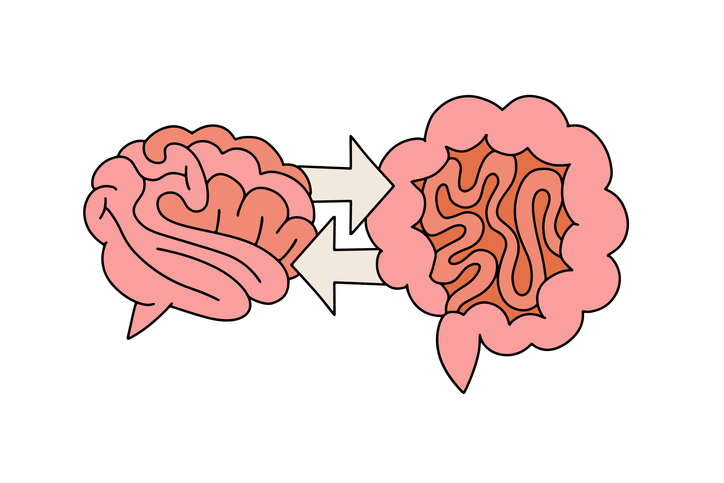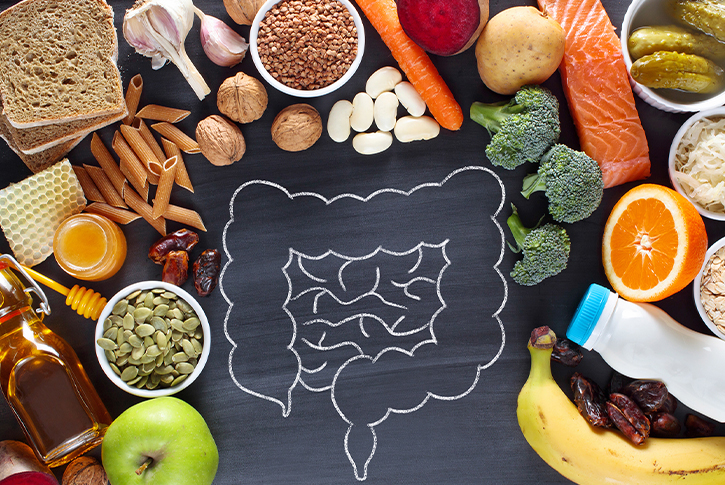Your gut health determines your body health.
Brain power, Activity power, Immunity, Emotional power, and Metabolic power.
All five powers depend on it!
The digestive system is one of the most vital organs in the human body, responsible for breaking down food into absorbable nutrients and eliminating waste. Gut health affects not only digestion but also the immune system. In fact, around 70% of immune cells reside in the gut, making it a key player in maintaining immune balance. The gut and brain are connected through an invisible bi-directional pathway known as the "gut-brain axis," a system comprising the brain, gut, and gut microbiota. Most people have experienced gut discomfort when stressed or anxious, such as stomach pain or diarrhea. This demonstrates how the brain and gut influence each other, exchanging signals back and forth. Additionally, the gut controls crucial digestive functions and has an independent nervous, endocrine, and immune system, earning it the title of "the second brain." Gut microbiota can communicate with the brain through metabolites like short-chain fatty acids, tryptophan, serotonin, and the vagus nerve, influencing gut motility, hormone secretion, and sensitivity.
Many studies have also revealed that Parkinson's disease patients often experience gut symptoms before being diagnosed, further proving the close connection between the brain and gut. Patients with gastrointestinal disorders, such as ulcers or irritable bowel syndrome, may also suffer from brain dysfunction, memory loss, or poor sleep quality.

When gut function is abnormal, common issues include indigestion, bloating, abdominal pain, constipation, or diarrhea. These symptoms not only disrupt daily life but may cause long-term damage to overall health. When the gut fails to absorb nutrients effectively, the body becomes prone to malnutrition, leading to reduced immunity, fatigue, and other health problems. An imbalance in gut microbiota is also common, which can lead to conditions like leaky gut, food allergies, metabolic or digestive-related obesity, anxiety, depression, and various other functional diseases.
 來源:Heho健康
來源:Heho健康
To maintain gut health, establishing regular eating habits and avoiding overeating are essential. Scheduled meals give the gut ample time to digest and absorb nutrients, preventing overload. Additionally, consuming high-fiber foods such as whole grains, legumes, vegetables, and fruits promotes gut motility, prevents constipation, and helps maintain a balance of beneficial gut bacteria. Supplementing with probiotics and prebiotics is also an effective way to maintain gut health, as probiotics increase the number of beneficial bacteria in the gut, while prebiotics provide nourishment for probiotics, enhancing their growth.
Furthermore, avoiding excessive intake of high-fat, high-sugar foods is crucial, as these can overload the gut and trigger inflammation. Chemical additives and preservatives in processed foods can also harm gut health and should be avoided. Meanwhile, sufficient water intake helps the digestive system function smoothly, ensuring food moves efficiently through the intestines and preventing constipation.

Exercise positively impacts gut health as well. Regular physical activity promotes digestion, allowing food to pass through the gut more quickly. Moreover, exercise reduces stress, which can alleviate gut-related issues such as irritable bowel syndrome. Maintaining a healthy lifestyle, regular routines, and managing stress are essential for protecting gut health.
In summary, gut health affects not only the digestive system but also immunity, metabolism, mental health, and more. By practicing good dietary habits, staying hydrated, exercising regularly, and managing stress, we can maintain gut health and improve overall well-being.
